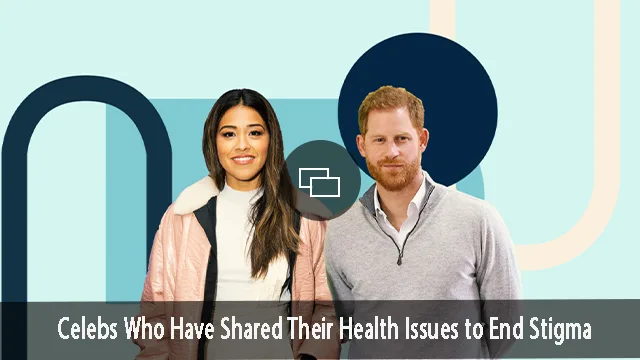For the most part, we don’t typically associate eating disorders with Black people. Culturally, in our community, curves are celebrated, and being labeled as “thick” is deemed a compliment. There are numerous songs in popular culture praising the size of women’s bodies and butts, and the larger, the better. Who can forget rapper Sir Mix-a-Lot’s “Baby Got Back,” or when Nelly sang in the affirmative on his hit song “Hot in Herre,” “Checkin’ your reflection and tellin’ your best friend, ‘Girl, I think my butt is getting big!’”
With these norms represented within the Black community and the media, it could be easy to assume that Black people do not struggle with eating disorders or to ignore the fact that we can develop them at all. Yet it’s crucial to look beyond these surface-level stereotypes and recognize the hidden challenges the Black community faces when it comes to eating disorders.
Statistics from the Association of Anorexia Nervosa and Associated Disorders shed light on a reality often overshadowed by societal perceptions. The organization also found that an estimated 9 percent of the U.S. population, or 28.8 million Americans, will have an eating disorder in their lifetime. According to National Eating Disorder Association, Black teenagers are 50 percent more likely than white teens to present bulimic behavior, like binge eating and purging, and Black, indigenous, and people of color are less likely than white people to be asked by a doctor about an eating disorder and are half as likely to be diagnosed or to get treatment.
During my time in medical school, I distinctly remember learning about eating disorders. In the textbooks and through the professors’ descriptions, the image painted was often that of a professional white woman, not someone of color. The focus was on identifying someone who was underweight, and using that as the main symptoms of an eating disorder. However, we must remove these labels and address biases underneath them, as they pose challenges in diagnosing eating disorders in Black patients.
You don’t have to be underweight or traditionally thin to have an eating disorder. You also don’t have to be white, or a woman. And when medical providers lean on those assumptions, the result is that patients don’t get the help they need. For instance, if a Black person is overweight, practitioners may not immediately think it’s possible that they could be struggling with food or a desire to lose weight. But what if they are dealing with binge eating or bulimia? This is where we face a gap in diagnosing individuals who don’t fit the stereotypical “norms”.
A mental health condition
There are three major categories of eating disorders, anorexia, binge eating, and bulimia. People of any body size, race, or gender can experience any of them, but what is important to note is that eating disorders are mental health conditions. Recognizing eating disorders as a mental health disorder is crucial as they impact both physical and psychological wellbeing and require collaboration of a diverse team of health professionals for effective intervention.
Anorexia is restricting what you eat to control your weight. Binge eating — like when we think of binge drinking — is consuming an extreme amount of food uncontrollably, stuffing yourself until you get sick, but you may not vomit. Bulimia involves eating large amounts of food and then forcing yourself to vomit.
Eating disorders are so hard to live with for many reasons, one of which is that food is not only physically necessary for survival, but is also a crucial part of our social and cultural lives. Food is often connected to our emotions and moods, and we incorporate it into so many areas of our lives. If you’re sad, you might eat a pint of ice cream, or if you want to celebrate, you go out to dinner. Food is earmarked for special events and holidays from the Super Bowl and Thanksgiving to weddings and funerals. Food is everywhere, something we consume everyday, and we need it to survive — and yet, when you suffer from an eating disorder or any mental difficulties with food, it can feel like your enemy.
Stigma and biases
In the Black community, we are already aware of existing biases and stigma surrounding mental health and the contact pressure to be “strong.” If you are grappling with food-related challenges, especially within the cultural context of your family, your loved ones may not understand why you’re struggling, which might make you feel uncomfortable discussing your concerns. If you do not reach out to a practitioner, there’s a risk that they might not recognize the depth of the issue, due to your race and engrained social stereotypes.
This lack of recognition can hinder access to proper care. For instance, if a Black person is diagnosed with diabetes, will the practitioner inquire about potential binge-eating, which could be contributing to the diagnosis?
As a people, and within medical community, we must check our biases and our perceived notions of what mental illness and eating disorders may look like.
Symptoms and consequences
The symptoms of eating disorders can overlap and present in Black individuals just as they do in any other race. People with eating disorders often will experience fluctuation in weight, express shame and guilt related to food, exhibit control in what they eat and adopt restrictive diets. Some might weigh themselves every day, disappear after large meals to induce vomiting in the bathroom, and suffer from poor dental health due to the presence of acid on their teeth, a side effect of excessive vomiting. People with eating disorders may also encounter difficulties concentrating and develop other mental health disorders, including anxiety and depression.
Eating disorders such as anorexia, can also be fatal, causing organ failure as the body shuts down due to lack of nutrients. According to the National Institute on Mental Health, individuals with anorexia are at risk of dying from medical complications associated with starvation, and suicide stands as the second leading cause of death for people diagnosed with the disorder.
If you or someone you love is struggling with or presenting symptoms of an eating disorder, resources are available for you. Call ANAD’s eating disorder helpline at (888)-375-7767 or text the Crisis Text Line at 741741 to speak to professionals who can help. You can also visit ANAD’s website for more resources.
Before you go, read about these stars who are taking on health stigmas:




